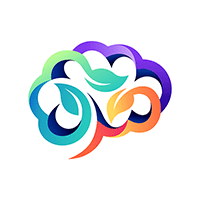Programme of Study
Knowledge, Skills and Understanding
- During key stage 3 pupils begin to understand, speak, read and write at least one modern foreign language. They become familiar with the sounds, written form and grammar of the language, and use this knowledge with increasing confidence and competence to express themselves in role plays, conversations and writing. They improve their understanding of the language by listening to people talking about different subjects and by reading a range of texts. They also increase their cultural awareness by communicating with people who speak the language and by using materials from countries and communities where the language is spoken.
- During key stage 4 pupils begin to use a modern foreign language more independently, drawing on a firmer grasp of grammar and a wider and more complex range of expression. They adapt their use of the language according to context, purpose and audience. They learn to understand a more extensive range of unfamiliar languages by reading and listening to a variety of materials from countries and communities where the language is spoken. They also increase their cultural awareness through more direct contact with people who live in those countries and communities.
Acquiring knowledge and understanding of the target language
Pupils should be taught:
- the principles and interrelationship of sounds and writing in the target language
- the grammar of the target language and how to apply it
- how to express themselves using a range of vocabulary and structures
Developing language skills
Pupils should be taught:
- how to listen carefully for gist and detail
- correct pronunciation and intonation
- how to ask and answer questions
- how to initiate and develop conversations
- how to vary the target language to suit context, audience and purpose
- how to adapt language they already know to different contexts
- strategies for dealing with the unpredictable [Marks the start of supplementary information, for example, unfamiliar language, unexpected responses Marks the end of supplementary information]
- techniques for skimming and scanning written texts for information, including those from ICT-based sources
- how to summarise and report the main points of spoken or written texts, using notes where appropriate
- how to redraft their writing to improve its accuracy and presentation, including the use of ICT
Developing language learning skills
Pupils should be taught:
- techniques for memorising words, phrases and short extracts
- how to use context and other clues to interpret meaning [Marks the start of supplementary information for example, by identifying the grammatical function of unfamiliar words or similarities with words they know Marks the end of supplementary information]
- to use their knowledge of English or another language when learning the target language
- how to use dictionaries and other reference materials appropriately and effectively
- how to develop their independence in learning and using the target language
Developing cultural awareness
Pupils should be taught:
- working with authentic materials in the target language, including some from ICT-based sources [Marks the start of supplementary information for example, handwritten texts, newspapers, magazines, books, video, satellite television, texts from the internet Marks the end of supplementary information]
- communicating with native speakers [Marks the start of supplementary information for example, in person, by correspondence Marks the end of supplementary information]
- considering their own culture and comparing it with the cultures of the countries and communities where the target language is spoken
- considering the experiences and perspectives of people in these countries and communities
Breadth of study
During key stages 3 and 4, pupils should be taught the Knowledge, skills and understanding through:
- communicating in the target language in pairs and groups, and with their teacher
- using everyday classroom events as an opportunity for spontaneous speech
- expressing and discussing personal feelings and opinions
- producing and responding to different types of spoken and written language, including texts produced using ICT
- using a range of resources, including ICT, for accessing and communicating information
- using the target language creatively and imaginatively
- listening, reading or viewing for personal interest and enjoyment, as well as for information
- using the target language for real purposes [Marks the start of supplementary information for example, by sending and receiving messages by telephone, letter, fax or email Marks the end of supplementary information]
- working in a variety of contexts, including everyday activities, personal and social life, the world around us, the world of work and the international world
Note for eligible languages
Schools must offer, in key stages 3 and 4, one or more of the official working languages of the European Union (Danish, Dutch, Finnish, French, German, Modern Greek, Italian, Portuguese, Spanish, and Swedish). Schools may, in addition, offer any other modern foreign language. Non-EU languages count as a foundation subject only when offered to pupils alongside the possibility of studying an official working language of the EU. A pupil may, therefore, study any modern foreign language that the school offers, but the offer must include an EU language.
